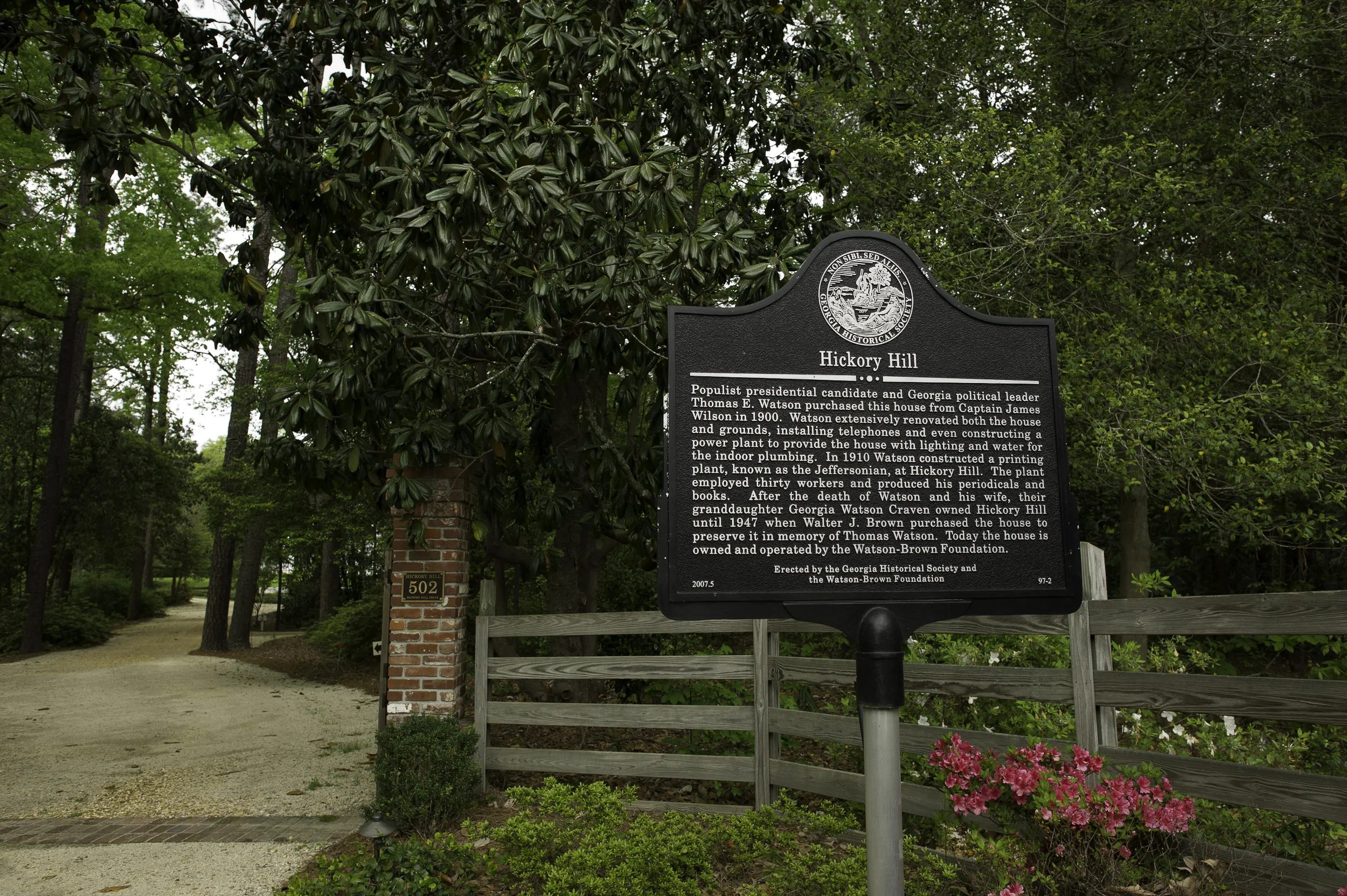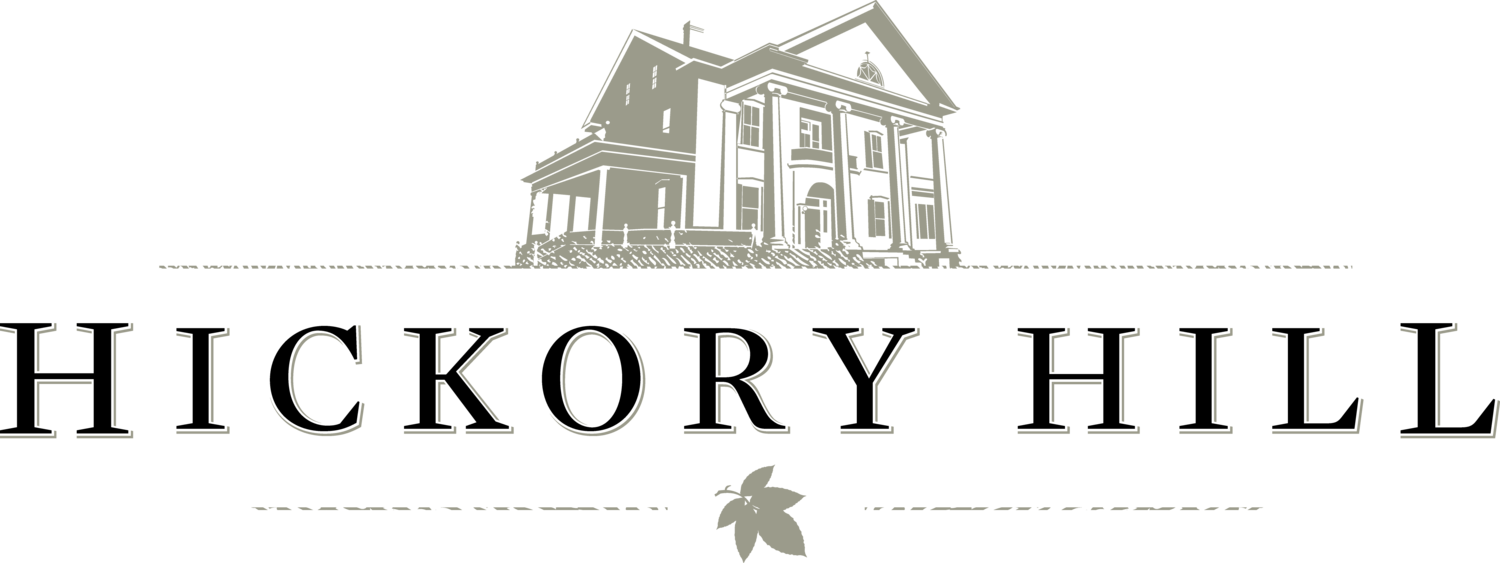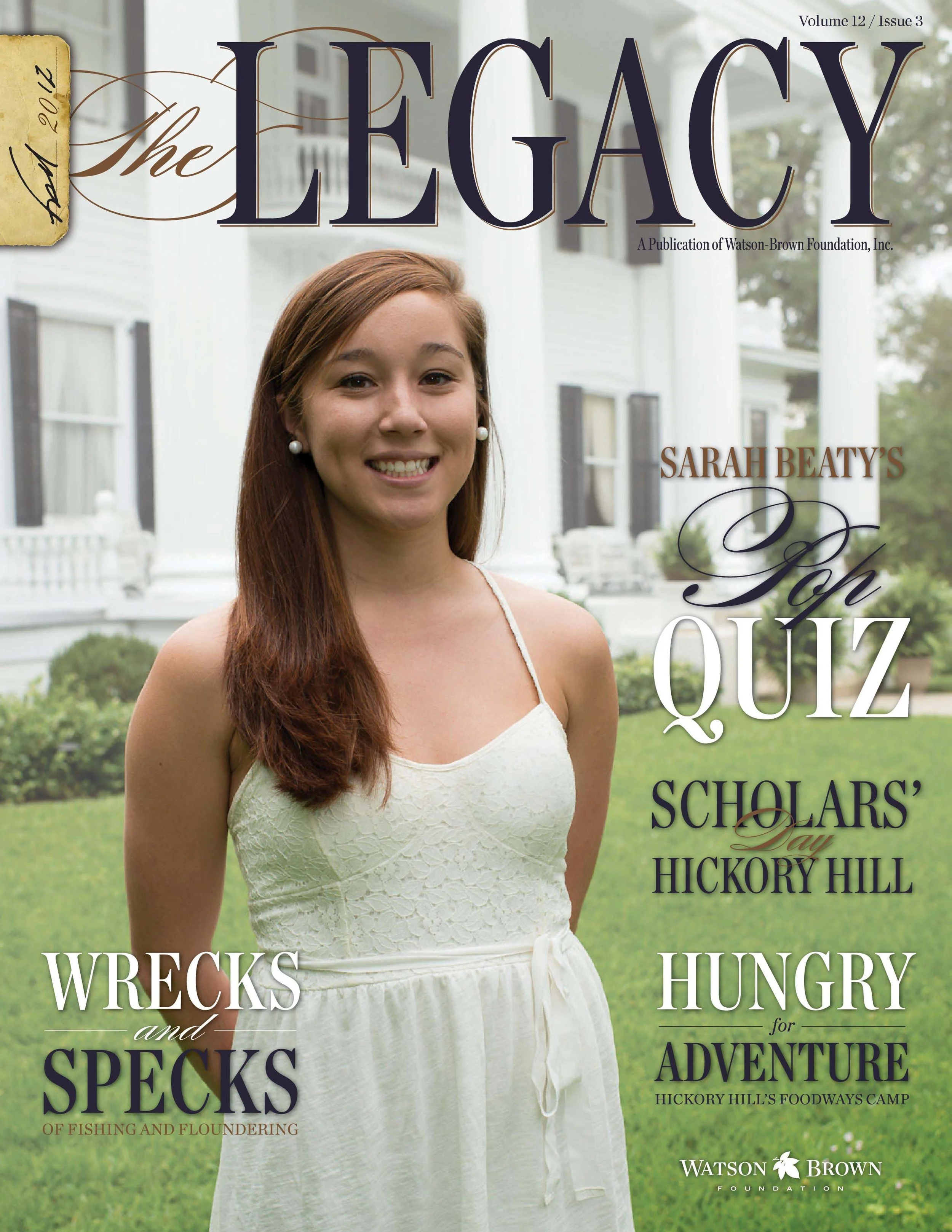




Educational resources
Field Trip, Outreach, and Traveling Resources; Summer Camp Details
Educational resources
Field Trip, Outreach, and Traveling Resources; Summer Camp Details
Field Trips
The Watson-Brown Foundation offers a myriad of grade - appropriate programs in history and environmental science tailored to the Georgia Standards of Excellence as well as National Education Standards.
Field trips and activities are free for educational groups.
2023-2024 Field Trip Dates are fully booked. We will begin booking for 2024-2025 on April 15, 2024.
Reservations are made on a first come, first served basis, and we recommend booking in May for the next academic year or in early August. Field Trip spots are available in October, November, March, April, and May. Outreach events can be scheduled in December, January, or February. Traveling Trunks and Exhibits can be checked out at any point during the academic year. To learn more about the programs we offer at each grade level, please review our Program Guide.
To schedule a field trip, please click on the link below and fill out the required information.
Outreach for Schools
Hickory Hill recognizes that time doesn't always permit your classes to visit us, so we can come to you! Outreach programs are free and aligned to the Georgia Standards of Excellence.
We have created several educational enhancements or virtual “field trips” that are free for classroom use. Teachers can reserve a number of Traveling Exhibits and Traveling Trunks, and we also offer online modules called Agnes Asks, which are modelled on Histories Mysteries.
Agnes Asks and History’s Mysteries
Agnes Asks lessons and the History Mysteries curriculum have been aligned to GSE for the Grade noted. They consist of an Inquiry Mystery Lesson, please start with that one; a Mystery Lesson; Student Handouts, and Teacher Background Materials. The presentations are narrated. The materials can be used In Person or in a Learn from Home setting.
Our thanks to the Collaborative for Educational Services for permission to use and alter their materials.
Educator Workshops
Georgia is presently re-vamping their Educator Certification requirements, so Hickory Hill will not be offering in-house teacher training until that is complete. Schools and districts may request inservice workshops for their teachers. Contact Melinda at mgales@hickory-hill.org
Pay for a Teacher Workshop with a credit card securely on Paypal, or print the Registration Form and mail with a check/money order.
For additional information, please contact:
Melinda Gales
Email: mgales@hickory-hill.org
Phone: 706- 595-7777
Fax: 706-595-7177

Summer Camps
Summer Camps
Hickory Hill offers three different day camp experiences every summer for upper elementary, middle school, and high school students. Eco-Adventures, Incredible Inventions, and Dig History are academic camps intended to both educate and entertain your camper.
Dig History
June 3-7, 2024
In DIG History! kids experience how archaeologists investigate the past. They explore ancient hunting methods, learn what our garbage says about us, and work alongside professional archaeologists to learn about forensic methods to solve crimes.
Campers MUST love being outdoors, science-y stuff, and being dirty to enjoy this camp! Space is limited to 12 participants.
Excavation takes place at the Jeffersonian Publishing Plant site (9MF914). The site is where Thomas E. Watson built a publishing plant back in 1910. Nothing remains of the plant on the surface, so it is the job of our Junior Archaeologists to find what remains below the surface.
THE PARTICULARS:
Who: Children ages 11 to 17 years (camper must have turned 11 by June 1)
What: Archaeology Day Camp When: 9:00am—4:00pm; June 3-7, 2024**
Where: Hickory Hill, 502 Hickory Hill Drive, Thomson, GA
Cost: $60 per week per child
Notes: Campers are required to have an up to date Tetanus shot to participate in this camp.
Eco Adventures
June 24-28, 2024
Eco-Adventures campers explore how Americans have cared for and lived on the land for centuries. They’ll learn how Native Americans lived off the land, how early Georgia settlers farmed, and how we can help sustain our environment for the future. This experiential camp allows kids to plant a medicinal and culinary herb garden, harvest fruit, vegetables, and eggs, and make snacks and crafts from the fruits of their labors.
Camp activities take place on an historic WORKING farm. Campers should love being outdoors, getting dirty, and science-y stuff to enjoy this camp. Space is limited to 12 participants.
THE PARTICULARS:
Who: Ages 9 to 15 years (Child must be 9 by June 1) What: Ecology Day Camp
When: 9:00am - 4:00pm; June 24-28, 2024
Where: Hickory Hill, 502 Hickory Hill Drive, Thomson, GA
Cost: $60 per week per child
Incredible Inventions
July 15-19, 2024
Investigate the gizmos and gadgets that made the world turn during the Twentieth Century. Campers will learn about inventions like the steam engine, the telegraph, electric light, the flying machine, and many others before trying out the technology on their own by building working models and experimenting with replicas.
THE PARTICULARS:
Who: Ages 11-17 What: History in STEM Day Camp
When: 9:00am - 4:00pm; July 15-19, 2024**
Where: Hickory Hill, 502 Hickory Hill Drive, Thomson, GA
Cost: $60 per child per week
**If your camper cannot attend the first day of camp, they will not be allowed to register. They will miss TOO much!
Request Registration Materials
Communicable Diseases and Summer Camp
We will be updating the status of sessions here, as we get directions from the State of Georgia, CDC, and Georgia DECAL. We are hoping to have as many camp sessions as possible, but it is an ever evolving situation. In the event that a camp must be cancelled, we will notify everyone as soon as possible. At this time we are requiring that children not attend if they or someone in their family has been sick within a two week window of camp starting and that parents check their children’s temperature each day before camp. Please click the button below to see our complete Covid 19 / Communicable Disease Plan.
Seasonal Employment
Hickory Hill has an education internship available during the summer of 2024 for an upcoming professional interested in archaeology, history, ecology, environmental science, and educating children.
Sponsored by the Watson-Brown Foundation, Inc.

For Researchers
For Researchers
Books and Pamphlets by Thomas E. Watson
+ WATSON, THOMAS E.
• Bethany: A Story of the Old South. New York: D. Appleton & Co., 1904.
• The House of Hapsburg: The Reigning Austrian Dynasty. Thomson, GA: The Jeffersonian Publishing Company, 1915.
• The Life and Speeches of Thomas E. Watson. Thomson GA: The Jefferson Publishing Company, 1911.
• The Life and Time of Andrew Jackson. Thomson, GA: The Jeffersonian Publishing Company, 1912.
• The Life and Times of Thomas Jefferson. New York: D. Appleton & Co., 1903.
• Napoleon: A Sketch of His Life, Character, Struggles, and Achievements. New York: The Macmillan Company, 1906.
• The People’s Party campaign book, 1892. New York: Arno Press, 1975.
• Political and Economic Handbook, 5th ed. Thomson, GA: The Jeffersonian Publishing Company, 1916.
• Prose Miscellanies. Thomason, GA: The Jeffersonian Publishing Company, 1912.
• The Roman Catholic Hierarchy: the Deadliest Menace to American Liberties and Christian Civilization. Thomson, GA: Jeffersonian Publishing Company, 1915.
• Speech Against the Conscript Act. Thomson, GA: The Jeffersonian Publishing Company, 1917.
• The Story of France: from the Earliest Times to the Consulate of Napoleon Bonaparte, 2 volumes. New York: The Macmillan Company, 1899.
• Waterloo. New York: Neale Publishing, 1908.
• "Why I Am Still a Populist." Review of Reviews. 38:303 306. September 1908.
Watson, Thomas E., ed. The South in the Building of a Nation. Richmond, VA: The Southern Publication Society, 1909.
+ BOOKS AND ARTICLES ABOUT THOMAS E. WATSON
• Brewton, William. The Life of Thomas E. Watson. Atlanta, GA: Published by the Author, 1926.
• Brown, Walter J. J.J. Brown and Thomas E. Watson: Georgia Politics, 1912–1928. Thomson, GA: Watson–Brown Foundation, 1988.
• Carageorge, Ted. “An Evaluation of Hoke Smith and Thomas E. Watson as Georgia Reformers.” Ph.D. dissertation, University of Georgia, 1963. DAI, 24, no. 06, (1963): 2440.
• Cashin, Edward J. “Vann Woodward’s ‘Tom Watson’: An Interpretation,” Georgia Review. 28(3):519–31. 1974.
• Chambliss, Amy. “Tom Watson’s R.F.D,” Georgia Review. 17(1):76 84. Spring 1963.
•Crow, Jeffrey. “Tom Watson, Populists, and Blacks Reconsidered,” The Journal of Negro History. 55(2): 99–116 Spring 1970.
• Fingerhut, Eugene R. “Tom Watson, Blacks, and Southern Reform.” Georgia Historical Quarterly60(4): 324–343 1976.
• Gray, Sarah Lois. “Thomas E. Watson: Leader of Georgia Populism.” Master’s thesis, Emory University, 1933.
• Irwin, Thomas Henry. “Thomas E. Watson Revisited,” Journal of Historical Review.
Available online at www.ihr.org/jhr/v03/v03p301_Irwin.html.
• MacLean, Nancy. “The Leo Frank Case Reconsidered: Gender and Sexual Politics in the Making of Reactionary Populism.” Journal of American History. 78:917–948. December 1991.
• Nelson, Richard Wayne. “The Cultural Contradictions of Populism: Tom Watson’s Tragic Vision of Power, Politics, and History.” Georgia Historical Quarterly 1988 72(1): 1–29.
• Ragan, Fred D. “An Unlikely Alliance: Tom Watson, Harry Weinberger, and the World War I Draft,” The Atlanta Historical Journal Fall 1981 35(3):19–36.
• Ramage, Thomas W. “The Bloody Death Congressional Election of 1892.” Richmond County History 1975 7(2):65–75.
• Rosengarten, Theodore. “‘I Stand Where My Boyhood Put Me’: Reconsidering Woodward’s Tom Watson.” Georgia Historical Quarterly 1988 72(4): 684–697.
• Saunders, Robert M. “The Transformation of Tom Watson, 1894–1895.” Georgia Historical Quarterly 1970 54(3): 339–356.
• Schmier, Louis E. “‘No Jew Can Murder’: Memories of Tom Watson and the Lichtenstein Murder Case of 1901.” Georgia Historical Quarterly 1986 70(3): 433–455.
• Smith, Robert W. “The People’s Party Paper and Georgia’s Tom Watson.” Journalism Quarterly. 42(1):110–11 (1965).
• Stermock, Michael C. “The Later Career of Tom Watson, 1906–1922.” Master’s thesis, University of North Dakota, 1984.
• Walsh, Julia. “‘Horny–Handed Sons of Toil’: Mill Workers, Populists and the Press inAugusta, 1886–1894.” Georgia Historical Quarterly 1997 81(2): 311–344.
The Populist movement among Augusta textile workers is examined through three Georgia newspapers the Democratic Augusta Chronicle, the Populist People’s Party Paper, and the Wool Hat of Richmond County, from 1892–1893.
• Woodward, C. Vann. Tom Watson: Agrarian Rebel. New York: The Macmillan Company, 1938.
• Woodward, C. Vann “The Political and Literary Career of Thomas E. Watson.” Ph.D. dissertation, University of North Carolina at Chapel Hill, 1937.
+ NEW SOUTH
• Davis, Harold E. “Henry Grady, The Atlanta Constitution, and the Politics of Farming in the 1880s,” Georgia Historical Quarterly 1987 71(4): 571–600.
Henry W. Grady, editor of the Atlanta Constitution, was the principal spokesman for the New South Creed. While he proclaimed support for the plight of the farmer, he painted visions of bountiful fields and fat cows throughout the South.
• Grady, Henry. The New South. New York: Robert Bonner’s, 1890.
+ THE POPULIST PRESS
• Clark, Thomas D. The Rural Press and the New South. Baton Rouge: Louisiana State University Press, 1948.
Good insight into the trials and tribulations of the rural press.
• Drago, Edmund L. “The Black Press and Populism, 1890–1896.” San Jose Studies 1975 1(1): 97–103.
• Folkerts, Jean. “Functions of the Reform Press.” Journalism History 1985 12(1): 22–25.
The Alliance and Populist Party were successful primarily because of reform press.
• Fuller, Leon W. “A Populist Newspaper of the Nineties.” Colorado Magazine. 9:81 87, May 1932.
The ideas of Davis H. Waite in his Aspen Union Era, 1891–1892.
• Holmes, William F. “Ellen Dortch and the Farmers’ Alliance.” Georgia Historical Quarterly 1985 69(2): 149–172.
Ellen Dortch served as editor of the Carnesville Tribune in Franklin County, Georgia, from 1890–92. She strongly opposed the Southern Farmers’ Alliance, the Georgia Alliance, and the People’s Party.
• Lutzky, Seymour. “The Reform Editors and Their Press.” Ph.D. dissertation, State University of Iowa, 1951.
• Penny, James Sterling. “The People’s Party Press During Louisiana Political Upheaval of the Eighteen Nineties.” M.A. thesis, Louisiana State University, 1942.
• Rogers, William Warren. “Alabama’s Reform Press: Militant Spokesman for Agrarian Revolt.”Agricultural History. 34(2):62–70. April 1960.
• Werner, Jane. “The Press and the Populists.” Colorado Magazine 1970 47(1): 44–61.
+ POPULISM
• Arnett, Alex Mathews. “The Populist Movement in Georgia.” Georgia Historical Quarterly. 7:313 338. December 1923.
• Brooks, Robert Preston. “The Agrarian Revolution in Georgia, 1865–1912,” Bulletin of the University of Wisconsin, No. 639, History series. Madison: University of Wisconsin, 1914.
• Danker, Donald F. “Populist Cartoons.” Kansas Quarterly. 1(4): 11–20. Fall 1969.
• Fuller, Wayne E. “The Populists and the Post Office.” Agricultural History 1991 65(1): 1–16.
Post Office regulations, amended in 1874, made second–class mailings easy and inexpensive, permitting newspapers to be delivered at no cost within their county of origin.
• Hahn, Stephen. The Roots of Southern Populism: Yeomen Farmers and the Transformation of Georgia’s Upcountry, 1850–1890. New York: Oxford University Press, 1983.
• Holmes, William F. The Southern Farmers’ Alliance: The Georgia Experience.” Georgia Historical Quarterly 1988 72(4): 627–652.
• Hunt, James L. “The Making of a Populist: Marion Butler, 1863–1895.” North Carolina Historical Review 1985 62(1): 53–77.
• Kantor, Shawn Everett. “Supplanting the Roots of Southern Populism: The Contours of Political Protest in the Georgia Hills.” Journal of Economic History 1995 55(3): 637–646.
• Kimmel, Bruce Ira. “The Political Sociology of Third Parties in the United States: A Comparative Study of the People’s Party in North Carolina, Georgia and Minnesota.” Ph.D. Dissertation (Sociology), Columbia University, 1981.
• Lawrence, Goodwyn. The Populist Moment: A History of the Agrarian Movement in America. New York: Oxford University Press, 1978.
• McMath, Jr., Robert C. American Populism: A Social History, 1877–1898. New York: Hill and Wang, 1993.
• Quillian, Bascom Osborne, “The Populist Challenge in Georgia in the Year 1894.” Master’s thesis, University of Georgia, 1948.
• Rochester, Anna. The Populist Movement in the United States: The Rise, Growth, and Decline of the People’s Party — A Social and Economic Interpretation. New York: International Publishers, 1943.
• Shaw, Barton. The Wool–Hat Boys: Georgia’s Populist Party. Baton Rouge: Louisiana State University Press, 1984.
• Tindall, George Brown. Populist Reader, Selections from the Works of American Populist Leaders. New York: Harper & Row, 1966
• Trautman, Karl G. The New Populist Reader. Westport, CT: Praeger Publishers, 1997.
• Watson, Richard L., Jr. “From Populism Through the New Deal: Southern Political History,” inInterpreting Southern History, edited by John G. Boles and Evelyn T. Nolen. Baton Rouge: Louisiana State University Press, 1987.
+ AFRICAN–AMERICAN POPULISM
Populism caught on among many disillusioned black Americans during the post–Reconstruction period. The “40 acres and a mule” promises were not being upheld by the Democrats, whereas the Populists offered some hope of political equality, stewardship of tenant farmer’s rights, and taxation reform.
• Abromowitz, Jack. “The Negro in the Populist Movement.” Journal of Negro History 38 (1953): 257–289.
• Adams, Olin B. “The Negro and the Agrarian Movement in Georgia, 1874–1908.” Ph.D. Dissertation. Florida State University, 1973.
• Bryant, Girard T. “The Populist Movement and the Negro.” M.A. thesis, Atlanta University, 1937.
• Fingerhut, Eugene R. “Tom Watson, Blacks, and Southern Reform.” The Georgia Historical Quarterly 4 (Winter 1976): 324–343.
• Gaither, Gerald H. Blacks and the Populist Revolt: Ballots and Bigotry in the “New South.”Birmingham: University of Alabama Press, 1977.
• Gnatz, William. “The Negro and the Populist Movement in the South.” M.A. thesis, University of Chicago, 1961.
• Goodwyn, Lawrence C. “The Populist Response to Black America.” In Democratic Promise: The Populist Moment in America. New York: Oxford University Press, 1976.
• Holmes, William F. “The Demise of the Colored Farmer’s Alliance.” Phylon 34 (1973): 267–274.
•McMath, Robert C. “Southern White Farmers and the Organization of Black Farm Workers: A North Carolina Document.” Labor History, 18 (Winter, 1977): 115–119.
• Miller, Floyd J. “Black Protest and White Leadership: A Note on the Colored Farmer’s Alliance.” Phylon 33 (1972): 169–174.
• Saunders, Robert. “Southern Populist and the Negro, 1893–1895.” Journal of Southern History54 (1969): 240–261.
• Van Woodward, C. “Tom Watson and the Negro in Agrarian Politics.” Journal of Southern History4 (1938): 14–33.
• Wilhoit, Francis M. "An Interpretation of Populism's Impact on the Georgia Negro." Journal of Negro History 1967 52(2): 116–127.
+ WOMEN’S POPULIST MOVEMENT
While Tom Watson and most other Southern Populists did not support voting rights for women, believing that the burden of the process would be too much for the delicate gender, the Populist movement nationwide gathered many women to its cause.
• Barthelme, Marion K., ed. Women in the Texas Populist Movement: Letters to the Southern Mercury. College Station: Texas A. & M. University Press, 1997.
In the American West women were gaining ground in their struggle for suffrage, largely through the vehicle of Populism. These letters offer some insight into the lives of female Populists.
• Bennion, Sherilyn Cox. “Ada Chase Merritt and the Recorder: A Pioneer Idaho Editor and Her Newspaper.” Idaho Yesterdays 1982 25(4): 22–30.
• Brady, Marilyn Dell. “Populism and Feminism in a Newspaper by and for Women of the Kansas Farmers’ Alliance, 1891–1894.” Kansas History. 7(4):280–90, 1984–85.
• Glazener, Nancy. “Regional Accents: Populism, Feminism, and New England Women’s Regionalism.” Arizona Quarterly 1996 52(3): 33–53.
New England women joined with women in the West to pursue universal suffrage; their thoughts on the fight are chronicled here.
• Gilman, Rhoda R. “Eva McDonald Valesh: Minnesota Populist.” Women of Minnesota: Selected Biographical Essays. St. Paul: Minnesota Historical Society Press, 1977.
• Plested, Dolores. “Amazing Minnie: A Nineteenth Century Woman of Today.” Colorado Heritage1984 (1): 18–27.
Minnie Josephine Scalabrino, was a Populist journalist for the right–leaning Rocky Mountain News.

The Legacy
The Legacy
The Legacy is the quarterly publication of the Watson-Brown Foundation. It not only tracks the Foundation's scholars and scholarship program, but also its work in historic preservation, southern studies, educational programming at its historic house museums.




